the cinema of STEVEN SPIELBERG
DIRECTORS CUTS
Other titles in the Directors Cuts series:
the cinema of EMIR KUSTURICA: notes from the underground
GORAN GOCIC
the cinema of KEN LOACH: art in the service of the people
JACOB LEIGH
the cinema of WIM WENDERS: the celluloid highway
ALEXANDER GRAF
the cinema of KATHRYN BIGELOW: hollywood transgressor
edited by DEBORA H JERMYN & SEAN REDMOND
the cinema of ROBERT LEPAGE: the poetics of memory
ALEKSANDAR DUNDJEROVIC
the cinema of GEORGE A. ROMERO: knight of the living dead
TONY WILLIAMS
the cinema of TERENCE MALICK: poetic visions of america
edited by HANNAH PATTERSON
the cinema of ANDRZEJ WAJDA: the art of irony and defiance
edited by JOHN ORR & ELZBIETA OSTROWSKA
the cinema of KRZYSZTOF KIESLOWSKI : variations on destiny and chance
MAREK HALTOF
the cinema of DAVID LYNCH: american dreams, nightmare visions
edited by ERICA SHEEN & ANNETTE DAVISON
the cinema of NANNI MORETTI: dreams and diaries
edited by EWA MAZIERSKA & LAURA RASCAROLI
the cinema of MIKE LEIGH: a sense of the real
GARRY WATSON
the cinema of JOHN CARPENTER: the technique of terror
edited by IAN CONRICH & DAVID WOODS
the cinema of ROMAN POLANSKI: dark places of the world
edited by JOHN ORR & ELZBIETA OSTROWSKA
the cinema of TODD HAYNES: all that heaven allows
edited by JAMES MORRISON
the cinema of
STEVEN SPIELBERG
empire of light
nigel morris
 WALLFLOWER PRESS LONDON & NEW YORK
WALLFLOWER PRESS LONDON & NEW YORKA Wallflower Press Book
Published by
Columbia University Press
Publishers Since 1893
New York Chichester, West Sussex
cup.columbia.edu
Copyright Nigel Morris 2007
All rights reserved.
E-ISBN 978-0-231-50345-7
Wallflower Press is a registered trademark of Columbia University Press
A complete CIP record is available from the Library of Congress
ISBN 978-1-904764-89-2 (cloth : alk. paper)
ISBN 978-1-904764-88-5 (pbk. : alk. paper)
ISBN 978-0-231-50345-7 (e-book)
Series design by Rob Bowden Design
A Columbia University Press E-book.
CUP would be pleased to hear about your reading experience with this e-book at .
CONTENTS
This projects gestation goes back almost as long as Steven Spielbergs career. Numerous friends and colleagues have contributed in various ways; those not mentioned here will know who they are and forgive their absence due to lack of space. In particular, though, for inspiration, aspiration, encouragement, assistance, criticism and opportunity I should like to thank the following (in roughly chronological order): Joan Morris; Nick Sorensen; David Lyon; Esther Weatherill; G. A. M. Wood, Graeme Smith and Rory Watson; Cathy Kuhnau; Garrett Stewart; Rob and John McCormack; Brian Smith; Neil Sinyard; Chris Dunton; Una MacDonald and other colleagues at New College, Swindon; Miles Booy; Ian Cameron; Bob Ferguson, Phillip Drummond and my fellow MA students at the Institute of Education, University of London; Katie Gramich, Paul Poplawski and other colleagues in the former Department of English, Trinity College, Carmarthen; Julie Mills; Diarmait Mac Giolla Chrost; Brian Winston and colleagues in the Department of Media Production, University of Lincoln, especially Ann Gray, Dave McCaig, Dean Lockwood, Diane Charlesworth, Mike Mason, Sylvia Harvey, Tom Nicholls and Tony Richards; Wiltshire County Council Library Service; the British Film Institute library; Trinity College library; the National Library of Scotland; University of Lincoln library; Yoram Allon and his editorial team at Wallflower Press.
Elliott and Bevan Morris have tolerated my repeated absence during evenings and weekends but have also become keen film viewers and astute critics with an enthusiastic interest in this book. Above all, special thanks are due to Janice Morris for taking on far more than her share of domestic chores and parenting responsibilities over an unconscionable period. Without her, the book would never have happened. While its shortcomings are my responsibility, any achievements are as much hers as mine, and I dedicate it to her with all my love.
the bourgeoisie had the devilish idea of using this new plaything to distract the masses, or more exactly, to divert the attention of the working classes from their fundamental objective the struggle against their masters. Sunk in the electrical narcotics of the cinemas, workers in various stages of hunger and the unemployed gradually unclenched their iron fists and unconsciously gave themselves up to the demoralising influence of the cinema of their masters.
Dziga Vertov: Introduction to Provisional Instructions to Kino-Eye Groups (1926)
Scene: a picnic during the Battle of Britain
| Celia Johnson: | What a perfectly lovely day its been. Lovely for us, I mean. I suppose thats very selfish of me, isnt it? |
| Noel Coward: | Extremely. |
| Celia Johnson: | I cant believe its so dreadfully wrong to forget the war now and again. When one can just for a little. |
| Noel Coward: | I think its very clever of you with all Hell breaking loose immediately over our defenceless heads. |
| Celia Johnson: | I made the most tremendous effort and pretended it wasnt real at all. They were toys having a mock battle just to keep us amused. |
| Noel Coward: | Thats the most shameful confession: sheer escapism. |
In Which We Serve (1942)
For Janice What a long strange trip its been
The Cinema of Steven Spielberg has several meanings, including the following:

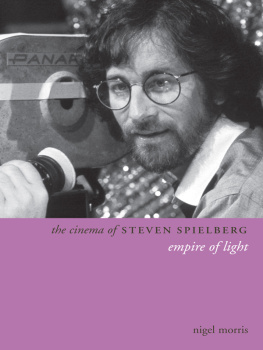
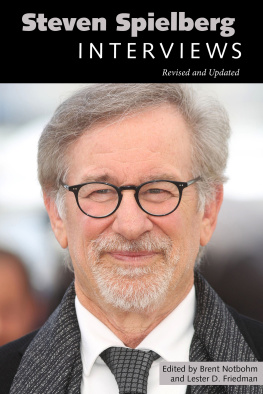


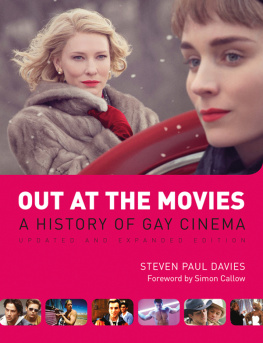
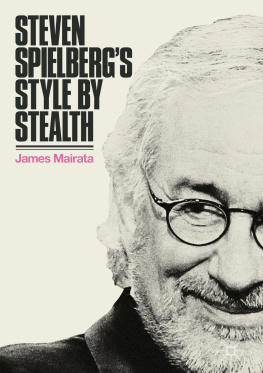
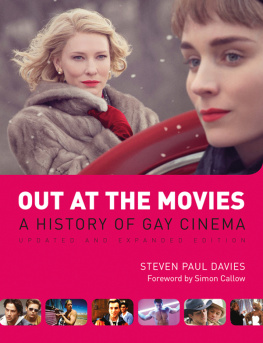
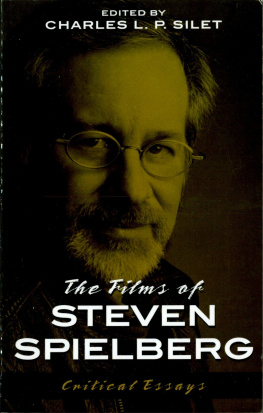
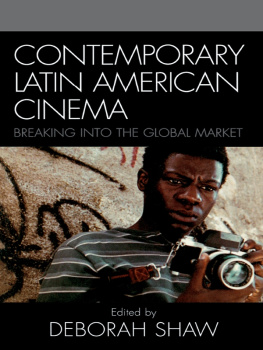
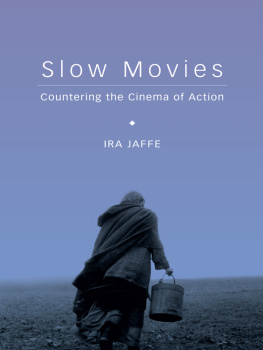
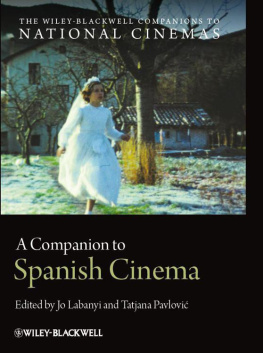
 WALLFLOWER PRESS LONDON & NEW YORK
WALLFLOWER PRESS LONDON & NEW YORK